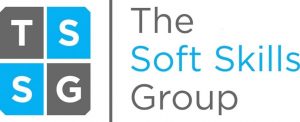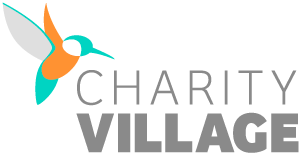Relationships are a key driver of workplace success. It is pivotal that you build and nurture effective relationships with your colleagues, managers, customers, leaders, and stakeholders throughout your career. This course will offer you valuable insight into how to give and receive feedback well in a variety of situations, navigate conflict at work, and demonstrate ways to embrace diversity and ensure everyone feels included in your working relationships.
Learning Objectives
By the end of this course, you will be able to:
- Understand the nature of conflict
- Explain the stages of conflict
- Successfully use techniques to manage conflict
Course Curriculum
Part 1: Giving & Accepting Feedback Well
How you can offer clear feedback with structured language makes an impact on your workplace success. Learn how to provide and receive feedback to make the information valuable and actionable. The best feedback is forward-focused and offers insight into how to proceed with maximized results.
This learning addresses the skills, techniques, and best practices to engage in valuable feedback. You will learn how to organize and package your thoughts and observations into easily understood communication deliverables.
Part 2: Conflict Management Skills
Conflict is a part of our lives every day. In fact, conflict is a common occurrence in the workplace. Often, dealing with it can be difficult and even contentious without some strategies and best practices.
You will learn strategies to manage conflict that are successful in a variety of situations. Identify common communication mistakes and how to avoid them, adopt techniques for building rapport and achieving trust from your colleagues, reduce stress, and understand the nature of conflict.
Part 3: Diversity & Inclusion at Work
Appreciating and valuing diversity depends on understanding the benefits and advantages of working with a variety of people. With increasing globalization, international boundaries are quickly disappearing. We must understand and value diversity in our customers, suppliers, managers, teams, and staff. Diverse cultural backgrounds, professional skills, and personalities are integral to a well- rounded organization. Our differences are “real” and often affect how we communicate and work together.
Learn how to identify those differences, get rid of stereotypes, and enhance our working relationships.
Course Access & Bundle Duration
This course is on-demand, meaning that you can take it anytime, at your own pace. It will take you approximately 45 minutes to complete from start to finish.
You have one year (365 days) to open and complete this course from the date of purchase before it will automatically expire in your account. However, once you open it for the very first time in your account, you will have unlimited access to complete it within 90 days.
Course Level/Prerequisites/Certification Credits
Introductory level, no prerequisites.
Final Exam
The final exam is optional but highly recommended. If you choose not to complete the final exam, the course status on your eLearning dashboard will show as incomplete and you will not receive a certificate of completion.
Written and Developed by The Soft Skills Group

We pride ourselves on our ability to develop dynamic solutions to address our client’s needs. We are committed to seeing our clients succeed in their challenging and changing environments. The Soft Skills Group trainers have the expertise and the experience to bring corporate best practices to clients.
We have worked successfully with over 80 corporate clients in many industries —including finance, telecommunications, health care, manufacturing, transportation, natural resources, not-for-profit and governments, and crown corporations. The Soft Skills Group has worked with organizations within education, finance, law, nuclear energy, various public service organizations, and in both profit and not-for-profit fields.
About the Course Authors

Diana Kawarsky, MA, CCP
President
Diana has over 20 years of experience working with more than 20,000 business professionals, effectively improving their management and communication skills to achieve higher impact results. She holds an MA Degree, is a Certified Coach Practitioner and twice published author and World Guru in Communications.

Sheldon Kawarsky, PhD
Vice President
Sheldon has over 20 years of experience holding manager and director roles in the private and academic sectors, focusing on business development and fostering relationships with companies, universities, government organizations, and venture capitalists. His strength is in relationship building and clarifying the needs of clients to ensure their training maximizes their return on investment.




